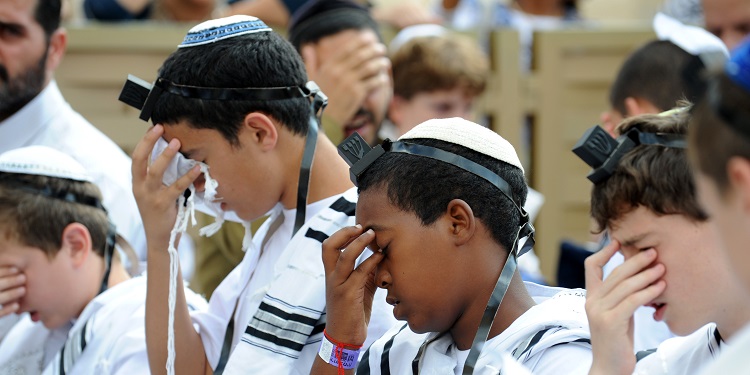The Possibility of Repentance
Yael Eckstein | September 25, 2020

“…if my people, who are called by my name, will humble themselves and pray and seek my face and turn from their wicked ways, then I will hear from heaven, and I will forgive their sin and will heal their land.” — 2 Chronicles 7:14
This month, Jews around the world are observing the High Holy Days, which began last week with Rosh Hashanah, the Jewish New Year, and which will conclude on Yom Kippur, the Day of Atonement, on Monday. This is a time of great reflection and introspection for us. I’m sharing with you weekly devotions based on my book, Generation to Generation: Passing on the Legacy of Faith to Our Children, about the High Holy Days, and the lessons of repentance and forgiveness which are central to this holy time.
For the entire month before Rosh Hashanah, the Festival of Trumpets, we observe the tradition to sound the shofar, the ritual trumpet, every day in our home. The piercing sound and unusual-looking ram’s horn captures our children’s attention from a very young age. As they grow older, they automatically associate the sound of the shofar with a time of repentance.
I love how this annual time period instills in our children a habit of taking stock of their lives and making amends when necessary. And I’m so grateful that this practice reaffirms the idea that we all make mistakes, but repentance is always possible.
According to Jewish tradition, God created the possibility of repentance before He even created the world. This is because repentance goes against the rules of nature. The laws of nature dictate that once something is broken, it cannot be put back together exactly as it was before. Once glass is shattered, even the most talented artisan cannot mend it.
However, through the possibility of repentance, God created a way for us to fix what has been broken as though nothing broke in the first place. Yom Kippur, the Day of Atonement, which follows Rosh Hashanah, is the ultimate day of repentance — and also a day to celebrate God’s benevolent forgiveness.
Divine forgiveness is a gift that must be valued and appreciated. As Rabbi Jonathan Sacks once wrote, “The single most important lesson of Yom Kippur is that it’s never too late to change, start again, and live differently from the way we’ve done in the past. God forgives every mistake we’ve made so long as we are honest in regretting it and doing our best to put it right.”
As the Yom Kippur liturgy asserts, there is no such thing as a person who does not sin. However, sin can only hold us back if we let it. God has given us the power to release ourselves from the tentacles of sin by asking forgiveness and resolving to behave differently in the future. God promises, “If my people who are called by my name, will humble themselves and pray and seek my face and turn from their wicked ways, then I will hear from heaven, and I will forgive their sin and heal their land” (2 Chronicles 7:14). The possibility of repentance and the pathway back to God is always open.
Your turn:
Is anything you have done in the past holding you back from living your fullest life with God? Let it go through sincere repentance and move forward with joy.
